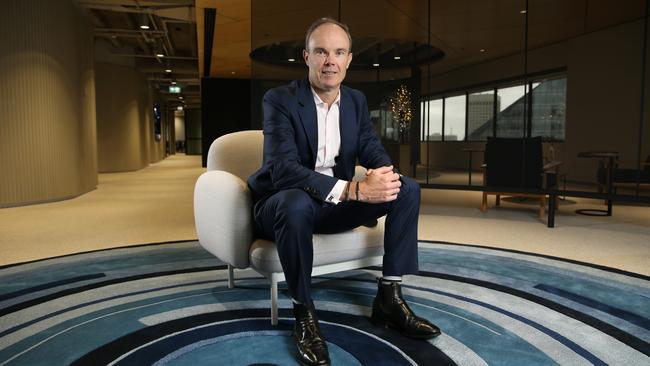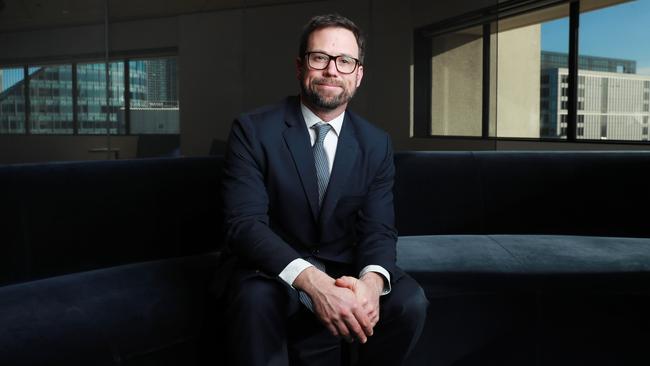Institutional funds pulled $3.2bn from Magellan Financial in September
Market volatility is being blamed for a major chunk of institutional outflows in September as former boss Hamish Douglass returns.

Institutional funds have removed some $3.2bn from Magellan Financial in September, the investment manager disclosed, adding half those outflows “relate to the liquidity requirement of a client impacted by global market volatility” late in the month.
In all, the company said, funds under management had fallen to $50.9bn – $31.1bn of institutional funds and $19.8bn in retail money – compared to $57.6bn at the end of August. Of the $6.7bn, outflows accounted for $3.6bn.
Magellan has lost, in the last 12 months, around $62.4bn in funds under management. The vast majority of that – some $52.2bn – has been in institutional funds.
Although Magellan did not identify which client had reduced its funds significantly, a jump in the UK government bond yields late in September – following the Truss government’s poorly-received budget – pushed some British retirement funds to liquidate their holdings in global equities and other investments.
Magellan shares dropped 8.4 per cent on Thursday, falling 99c to close at $10.75. They have collapsed 62.3 per cent in the last 12 months, falling $17.79.
Shaun Ler, an equities analyst at Morningstar, said he was not surprised institutional money was flowing out of the fund given the volatility in markets.
“If we look at the entire equities asset class, there‘s just been massive redemptions right across the world. Because of all the volatility, a lot of institutions are rebalancing their portfolios,” Mr Ler told The Australian.

“In other words, some of these insto redemptions can be due to fundamental issues, but for some it‘s really just due to this loss of risk appetite. And that component of those redemptions will come back, the flows will become positive again.”
The retail money flowing out of the fund was more of a concern, Mr Ler warned. “The retail redemptions, that tells another story. Retail clients and their advisers have been very loyal to Magellan. And seeing them redeeming consecutively, that tells us that people are moving on; they’re looking for alternatives.”
Morningstar has recently cut its fair value price on Magellan from $28 to $20 per share due to its subpar performance.
“Our prior thesis has not played out,” he wrote in a recent note to clients. “We underestimated the market disruption to Magellan’s investment style, and performance has not materially improved since it began in late 2020 … We also understated the downside from the dilution of Magellan’s brand, evidenced by mandate losses and outflows.”
Magellan’s flagship global equities fund has underperformed over one, three, five year, and ten years, due in part to its exposure to out-of-favour technology stocks including Alphabet, Microsoft and Netflix.
And Mr Ler said that – even if Magellan improved its track record – it was unlikely to regain its competitive position in the market. “Combined with an abundance of alternatives, Magellan has matured in the global investing space, in the Australian context. Its above-average retail fees are becoming difficult to justify,” he wrote in a note to clients.
A fund manager who declined to be named said Magellan would need to turn around performance and make a top appointment to replace retiring head of distribution and sales Frank Casarotti in 2023, to help it regain traction with investors.
“We saw what happened at Platinum (Asset Management) when Kerr Neilson stepped back and unfortunately it looks like that in reverse for Magellan,” the fund manager said. “It will take time for client flows to settle down, but with the right people they can turn it around.”

After months of turmoil – and the departure of founders Hamish Douglass and Brett Cairns – the fund manager’s new chief executive, former Future Fund deputy chief executive David George, started at the company in July. Mr Douglass went on leave in February, months after the departure of Dr Cairns, who abruptly quit as chief executive in December.
Mr Douglass was replaced as chairman by Hamish McLennan and by a Magellan co-founder, Chris Mackay, as chief investment officer. But the departure of Mr Douglass resulted in significant disruption at Magellan, and led some influential ratings groups to place the company’s global equities strategies in review, indicating, indicating to advisers that no extra money should be placed into the funds.
The funds manager also lost its largest mandate, from British firm St James’s Place, in late December, sending shares lower.
Meanwhile, Mr Douglass, is set to return to Magellan after leaving the business under a swirl of controversy earlier this year. He returns to the inner fold this month and will pocket $400,000 a year for his investment expertise in his new role as an investment consultant to the global fund manager. He will provide consulting services from October, but won’t start earning the consulting fee until February 7, a date that aligns with the notice period of his previous roles.
ADDITIONAL REPORTING: VALERINA CHANGARATHIL





To join the conversation, please log in. Don't have an account? Register
Join the conversation, you are commenting as Logout